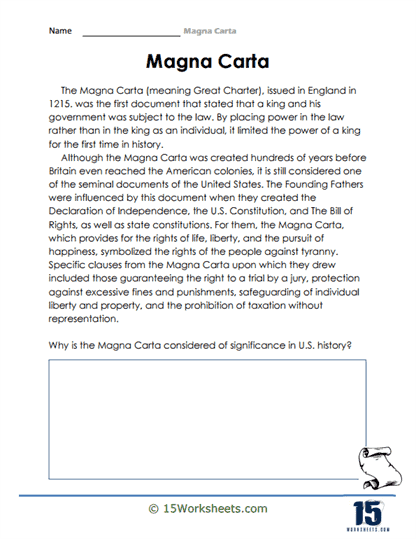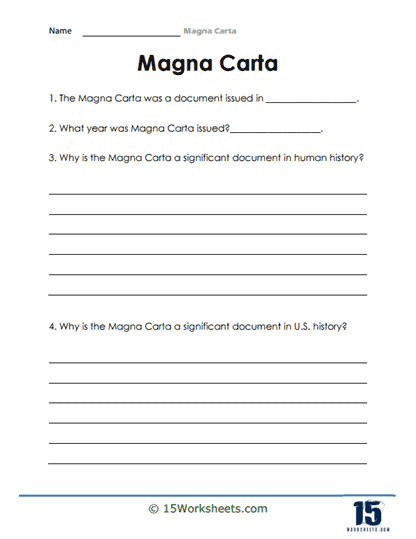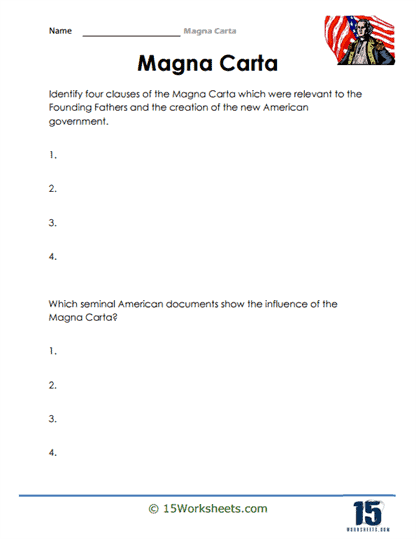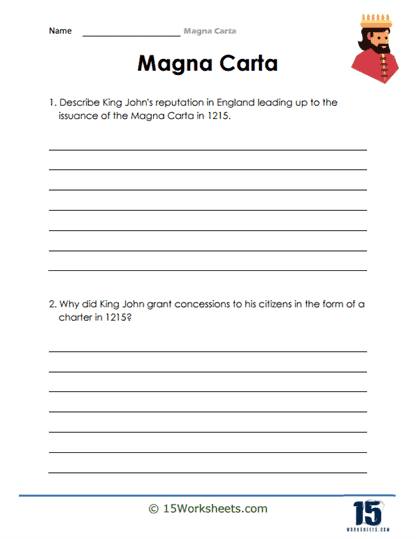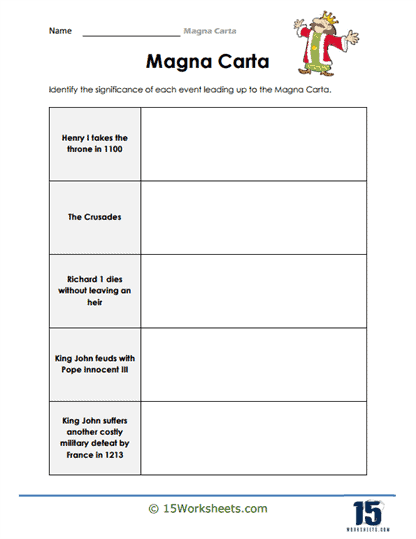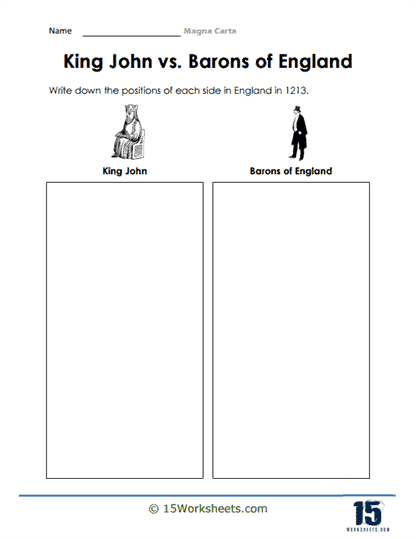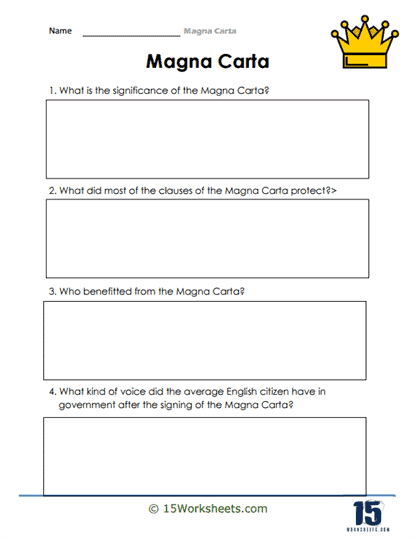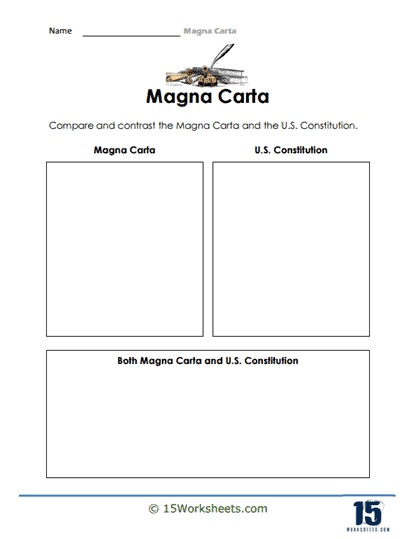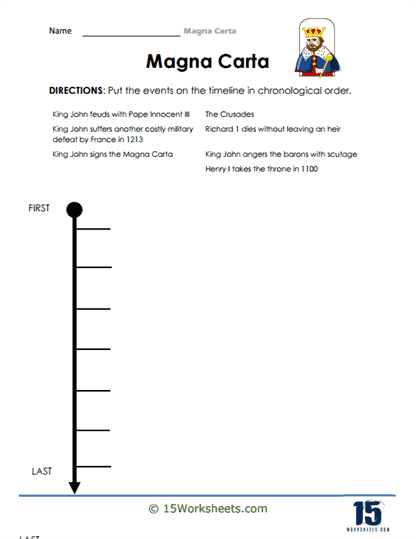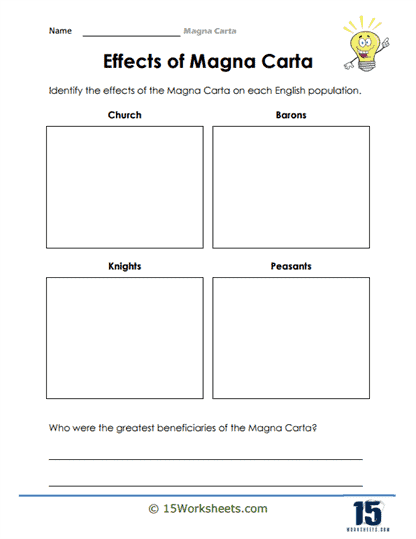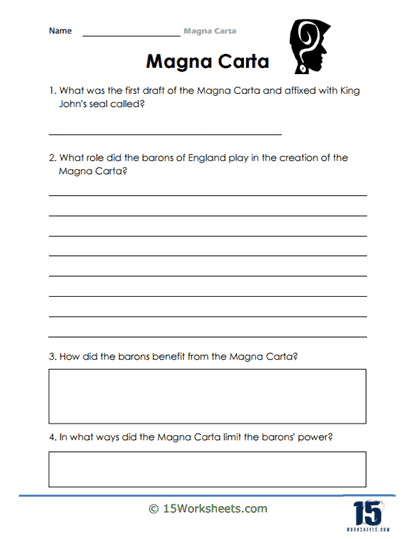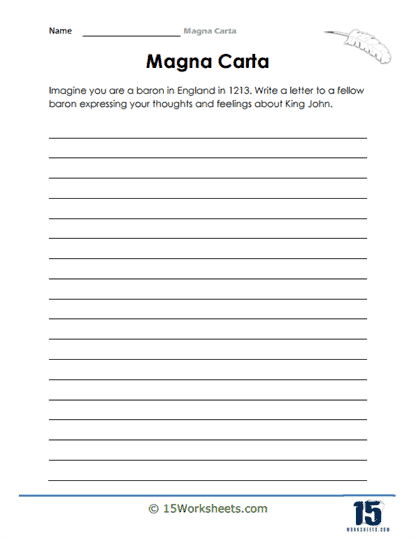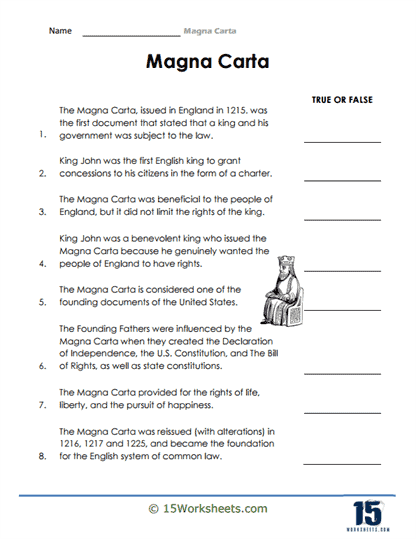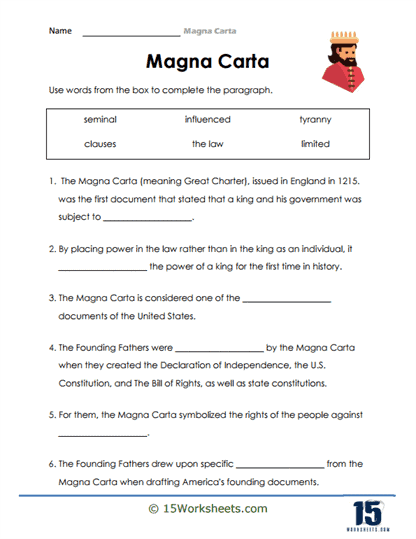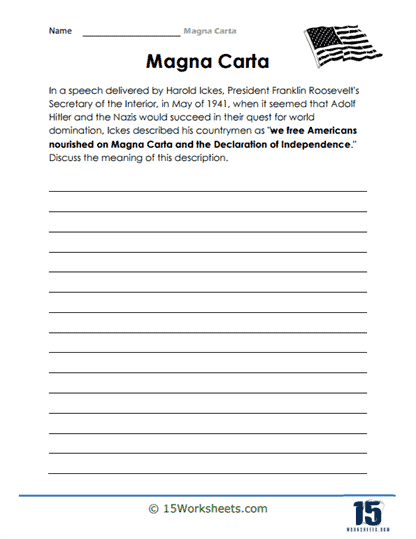Magna Carta Worksheets
All About These 15 Worksheets
This series of 15 worksheets helps students learn all about the Magna Carta and its impact on society. It is designed to provide an in-depth exploration of the Magna Carta’s historical context, significance, and enduring influence on the development of democratic principles. By engaging with these worksheets, students will gain a deeper understanding of the rights and freedoms enshrined in this historic document while honing their critical thinking and analytical skills. Through these worksheets, students will:
- Discover the historical background and circumstances that led to the creation of the Magna Carta through a reading passage;
- Dive into the key clauses and principles outlined in the Magna Carta;
- Examine King John’s role and impact to the issuance of the Magna Carta;
- Identify the significance of key events that lead up to the Magna Carta;
- Compare the positions of King John and and the Barons of England in 1213;
- Compare and contrast the Magna Carta and the U.S. Constitution;
- Put the key events in the correct sequence across a timeline;
- Figure out the effects of the Magna carta on various groups of the English population such as the church, barons, knights, and peasants, the roles each of them held, and the benefits they gained;
- Develop their creativity by answering writing prompts that require them to put themselves in the shoes of someone who witnessed the historical events in a first-hand account;
- And examine the lasting impact of the Magna Carta on legal systems, constitutional development, and the protection of individual rights through various exercises and engaging activities.
By delving into this series of Magna Carta worksheets, students will not only gain historical knowledge but also develop critical thinking, analysis, and contextual understanding. These interactive activities empower students to appreciate the significance of the Magna Carta in shaping democratic values and provide a foundation for exploring the ongoing relevance of this historic document in today’s society.
What Was the Magna Carta?
The Magna Carta, also known as the Great Charter, was a legal document signed in 1215 by King John of England and a group of rebellious barons at Runnymede, near London. The document aimed to address the barons’ grievances against the king’s arbitrary rule and limit his power by establishing the principle that no one, not even the king, is above the law. The Magna Carta is considered a foundational document in the development of democratic principles and the rule of law, and its significance lies in several key aspects:
Protection of Rights and Liberties
The Magna Carta contained 63 clauses that addressed various issues, such as the protection of property rights, limits on taxation, and guarantees of due process. Some of these provisions have served as a basis for the development of individual rights and liberties over the centuries, including the right to a fair trial and the principle of habeas corpus, which prohibits unlawful detention.
Limitations of Royal Power
The Magna Carta was the first document to impose legal limits on the power of the English monarch, establishing the principle that the king must govern within the confines of the law. This idea laid the groundwork for the concept of constitutional monarchy and the separation of powers, which are fundamental to modern democratic governance.
The Rule of Law
By asserting that no one is above the law, including the king, the Magna Carta introduced the principle of the rule of law, which remains a cornerstone of democratic societies today. The rule of law dictates that everyone, regardless of their position or status, is subject to the same laws and legal processes, ensuring fairness, justice, and equal treatment under the law.
Influence
The principles enshrined in the Magna Carta have influenced the development of other foundational legal documents, including the United States Constitution and the Universal Declaration of Human Rights. The Magna Carta’s ideas on individual liberties, due process, and the limitation of government power have informed democratic systems around the world.
While the Magna Carta was initially an agreement between King John and the barons to resolve a specific political crisis, it has evolved into a symbol of freedom and justice over the centuries. Its significance lies in its enduring influence on the development of democratic principles, the rule of law, and the protection of individual rights and liberties.

